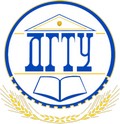Topic outline
-
-

DON STATE TECHNICAL UNIVERSITY
Department “Automation of Production Processes”
SKADA for AI systems
-
-
-
PC-2: Capable of selecting and participating in the experimental verification of the performance of software platforms of knowledge-based systems to ensure the required criteria of efficiency and quality of functioning
PC-3: Able to manage projects to build, maintain and utilize customer-side knowledge-based systems.
PC-4: Able to use methods and tools of knowledge engineering.
PC-10: Able to lead client-side projects to create, implement and utilize one or more end-to-end digital artificial intelligence technologies in application domains.
Indicator: UGK-3.1 Use modern information and communication technologies and global resources, as well as modern digital systems for automated design of technological processes, create programs for manufacturing parts and assemblies of varying complexity on numerically controlled machines, design algorithms for the operation of flexible production systems.
-
Test description
1. The question bank consists of 70 tasks that test the level of mastery of competences of the learner. During the test each student is offered 30 test tasks of 15 open and closed types of different levels of complexity.
2. For a correct answer to a test task the student receives 1 conditional point, for an incorrect answer - 0 points. At the end of the test, the system automatically determines the ‘earned final score’ for the test, according to the evaluation criteria
3 The maximum total sum of points for all correct answers is 100 points.
4 The test is successfully passed if the student has correctly answered 70% of the test tasks (61 points).
5. To pass the test, including the organisational moment, students have no more than 2 hours (120 minutes). For each test task on average 3 minutes.
6. The learner is given one attempt to pass the computer-based testing.
Codifier. The codifier of the test for the discipline is the section of the working programme ‘4. Structure and content of the discipline (module)’.
-